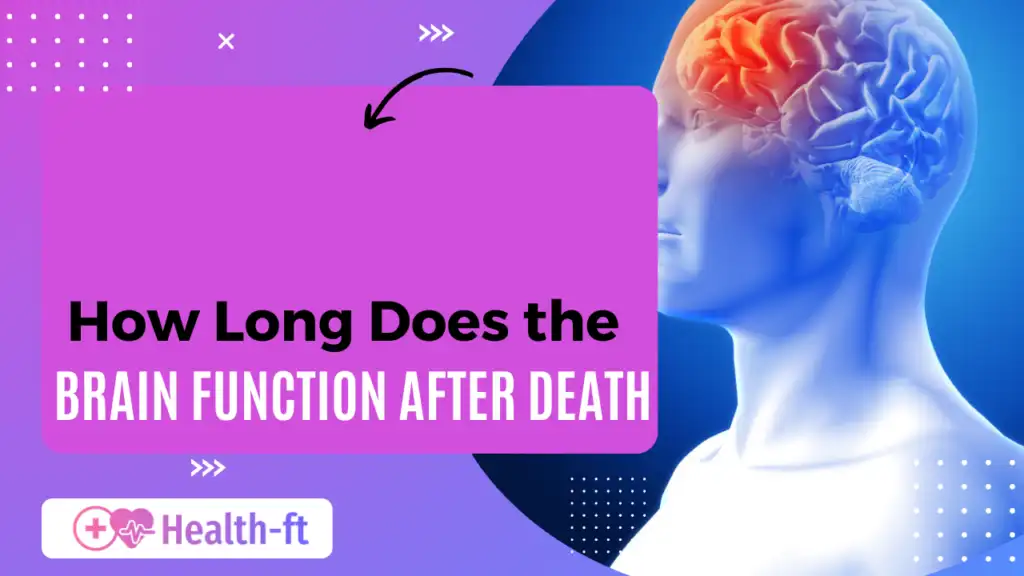The human brain, which is considered the supreme organ of the human body, controls the thought process and other physical and mental feelings. When a person dies, their bodily functions cease, but the question remains: How long does the brain function after death?? This article gives the reader insight into the scientific aspects of the brain’s activity after death, having looked at the research.
What Happens to the Brain During the Dying Process?
Death is not an event that happens with a single moment, but a gradual process. Instead, it unfolds in stages:
- Clinical Death: This is when the heart slows down and stops beating, and one stops breathing. Blood flow stops, cutting off the entire body, specifically the brain, from supplying oxygen.
- Biological Death: When there is no oxygen, body cells like brain cells start to die. It is at this stage that distinct diversification is seen as irreversible.
The brain is a voracious consumer of oxygen, so it is perhaps the first internal organ to signal failure within the body. However, according to several investigations, it has been found that brain function does not shut down on the occurrence of clinical death. However, the brain takes several minutes to hours to undergo a process of changes due to a seizure.
How Long Does a Brain Function After Death?
The First Few Minutes
It is noteworthy that in the initial moments of clinical death, the brain activity definitely increases. It is found through EEG investigations that the brain cranks out gamma waves that are connected with consciousness for as much as 4-5 minutes in a state of cardiac arrest.
The Brain’s “Last Surge”
In 2013 the researchers identified a process while experimenting on rats called a “brain surge” in rats. This is an increase in brain activity immediately after the individual’s passing; it may represent higher consciousness. Several human investigations have produced similar findings, although more research has gone into this field.
Cellular Death in the Brain
Neurons or brain cells are known to die as soon as they are deprived of oxygen. Unfortunately, this process is time-consuming. Some cells in the brain may still be metabolically active for 4-6 hours under certain conditions, similar to what occurs in neurodegenerative diseases like Alzheimer‘s.
How Long Does the Brain Function After Death?
The size of the brain is quite impressive, taken into consideration that after the death, it works for 3-5 minutes.
The intellectual activity of the brain (consciousness and thoughts) stops within minutes while cell functions might continue for hours, but oxygen supply plays a crucial role. Specific breathing techniques can help optimize oxygenation while alive. Factors influencing this timeframe include:
- Temperature: Chill temperatures reduce the rate of cell damage or death. Less severe reactions can be attributed to cooler temperatures.
- Circumstances of Death: Death that occurs abruptly may also lead to relatively better preservation of brain function than conditions that take time to worsen.
- Resuscitation Efforts: In some cases, CPR, or defibrillation, is able to restore blood flow and oxygen to the brain for brief period and thus prolong activity.
Does the Brain Function After Death?
When considering the state of the human brain after death the term “live” can be quite a relative one. However, there is no consciousness and cognition activity after death since the cerebral cortex provides consciousness activity, but individual neurons and glial cells may continue their function for several hours. Scientists have seen receptor activation and even transcriptional activity in the postmortem brain, which confirms that some biological function occurs in the brain even after death.
Some Interesting Findings from research
Near-Death Experiences (NDEs)
Some people who have been revived report vivid experiences, such as seeing a bright light or feeling detached from their body. Studies show stress levels and sleep quality affect brain resilience during extreme experiences.
Transplant Viability
Research into brain death has advanced organ transplantation. They can save the lives of affected people, as well as donate organs like the brain stem, knowing the period cells live.
Cryonics
Certain researchers are looking for how the body and the brain can be preserved after death through freezing (cryonics) with a view of reviving the dead someday. The idea of cell preservation is also explored in modern health science, such as in organ regeneration and detoxification.
Contributing factors to post-mortem brain activity
Several factors determine how long the brain remains active:
- Age: Younger brains have increased activity for a longer period.
- Health: It means that, at the time of death, the healthier the brain, the more extended it may remain capable of functioning.
- Cause of Death: Traumatic deaths can cause the brain to cease quicker than natural death processes.
Ethical Implications of Brain Studies After Dead
The study of brain activity after death raises ethical questions:
- Resuscitation: To how many attempts should efforts be made to bring a person back to life? The fear and anxiety around death are common, and understanding how to manage anxiety can be helpful.
- Organ Donation: Correct diagnosis of brain death is important in the right process of organ transplant.
- Cryonics and Revival: In the case future technologists produce outcomes that will revive the brains, how can society address the repercussions?
How Long Does the Human Brain Function After Death?
While “live” means that a person’s brain works perfectly, parts of the brain continue to display biological activity for six to twelve hours given perfect conditions. However, for legal or working purposes, it can be defined as brain death, which is found when there is no more functioning of the brain and this usually happens within 2 or 5 minutes of oxygen loss.
Conclusion
The question about the duration of the brain function after death is as exciting as challenging. Consciousness is brief; it may be absent within minutes of such an event, but biological functions may persist for hours. They are also essential to explain the components of the dying process and other ontological and axiological questions of the human life, death, and possible possibilities for revivification.
With time and enhanced research, the exploration of the mysteries of how and what happens to the brain after a person dies will receive renewed focus as well as improved outcomes.




